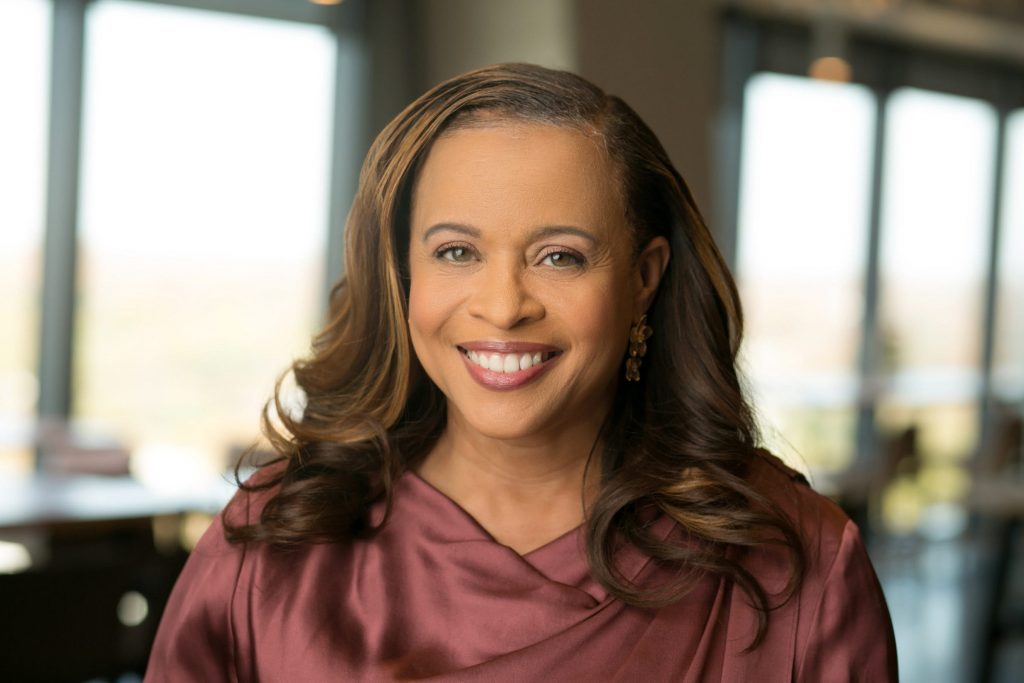
- Three shootings in the past two weeks underscore America's problem with violence and racism.
- Google's head of diversity shared how recent events affect her personally and professionally.
- Melonie Parker talked about Google's progress on diversity and her personal mission.
A recent trio of deadly shootings in New York, Texas, and California reveal how violent racial hatred embedded in American culture can make corporate diversity advocates' work feel exhausting but more urgent than ever.
Melonie Parker, Google's chief diversity officer, who is Black, feels this acutely.
"That could have been my mom," Parker said, referring to the people killed in Saturday's mass shooting at a grocery store in Buffalo, New York. "What I find horrifying about it, particularly as a Black person, is our wounds are never fully allowed to heal."
The violence can be overwhelming: In Buffalo, 13 people were shot and 10 were killed, all of them Black, in an attack President Biden called "domestic terrorism." The following day, one person was killed and at least five others were wounded when a gunman attacked a lunch banquet at a Taiwanese church in Laguna Woods, California. Last week, three people were wounded in a shooting at a Korean-owned hair salon in Dallas that's being investigated as a hate crime.
Many Black and Asian Americans in particular are reeling from the attacks and taking to social media to express grief, anger, and feelings of being overwhelmed. Parker knows that many Google employees are hurting, too. In a time when employees want to feel a sense of inclusion at work and CEOs are being called upon to speak on social issues, Parker sees her role as only growing more important.
In the latest installment of The Equity Talk, Parker reflected on the state of racist hate in America, her growing role advising Google's other C-suite leaders, and the company's progress over the past year to advance diversity, equity, and inclusion.
This interview has been edited and condensed.
The events of the past several days are extremely disturbing. What are your thoughts about advancing diversity in a society struggling with ugly extremism?
The work of diversity, equity, and inclusion has never been more important. These random, senseless events mean we have to do this work in an even greater way. We talk about it, we hold sessions in solidarity where we partner with an external group, and we bring in counselors and we hold sessions for the impacted community.
In this case, it's for the Black community to come together to mourn together. We also recently supported our Asian community because of what happened at the Laguna Woods Church in California. The word I will use here is attunement. We're very attuned to what's impacting our communities externally and internally.
I do want to push back on characterizing these shootings as random.
It's a very fair point to push back on that. I think what I meant when I said "random" was that it caught us by surprise. It just came in ways that were unprovoked.
That could have been my mother. She's 84 years old, and she goes to the neighborhood grocery store. These just keep taking us by surprise. I go back to the fact that these wounds aren't fully allowed to heal, and then they're reopened.
Let's talk about the work you've done over the past year. Google increased the representation of Black employees. But the percentage is still low, at just 5.3% of your workforce. How do you plan to increase this?
We're gonna keep doing what we're doing. When we think about the pipeline, we're not only looking at who's coming into Google over the next one to three years, but also who's coming into Google over the next 15 years. We're going to see that payoff.
With our racial-equity commitments, we set goals for leadership and then we set goals to more than double the population of Black employees at Google. So we're focused on meeting those commitments and then continuing to increase them from there.
How do you respond to people interviewing at Google who might say, "The percentage of Black employees at Google, 5.3%, is lower than I would like to see."
We are very focused on representation, which is hiring minus attrition. So we're focused on ensuring that we're bringing people in. At the same time, we're focused on addressing internal culture, internal systems, and internal processes. I use an analogy that we're flying a plane. We're putting people on the plane, we're changing the tires, we're doing several things at the same time to make the progress that we need to make. We can't take our foot off the gas and we're not going to.
Google has now reached a point where Black employees are not leaving at higher rates than their white colleagues. What culture shift is happening at Google?
One of the most significant things that we did was we translated the energy of the global racial-justice movement into action. So our goal has been to build sustainable equity for our Black community, both internally and externally. We've actually used our Black employees, particularly our Black executives, as advisors and consultants to the company's leadership. They've advised on what changes we need to make, and how we can address systemic and structural barriers.
Some 80% of employees said they feel like Google is a place where everyone can succeed, but that also means that 20% might feel differently. Why do you think that they might feel this way and, and how are you working to reach that 20%?
What we're doing with that additional 20% is getting as close as we can to answering: What's not working well? What's contributing to those lived experiences? Then we're intervening in those particular spots.
For example, we recently created a six-month onboarding program for new Black Google employees. Our new Black employees were a part of the regular, three-day orientation process. But what we saw when we looked at the data is that new joiners were leaving earlier. So when we went back, we recognized there was something different that we needed to do to increase retention of Black employees. And so as part of this six-month program, we also train managers and we are equipping managers to lead across differences.
The tech sector is in the midst of a contraction right now. Meta is pausing hiring, and Amazon's CFO said some warehouses are overstaffed. Is Google struggling with this contraction? And how might it impact diversity, equity, and inclusion, or DEI, goals?
So, thankfully we've been buffered from that. We continue to have very strong hiring and have been able to close the gaps with attrition of our underrepresented communities.
It's not just how we're responding to the racial-equity movement, but recognizing the need for extending our caregivers' leave or making sure that we have the right benefits in place to provide support to employees. It's about the work we've done across DEI, which includes work to stop Asian hate, working with our women's community, and our parents' community as well. Over the past two or so years, we've all been trauma-bonded collectively. We're using that to propel forward for good in terms of the trainings and products and benefits we design.
Google is no stranger to how difficult and complicated DEI can be. In 2017, James Damore, a white engineer, wrote a 10-page memo that went viral for blasting diversity measures at the company. How are you dealing with that pushback from those who might feel DEI measures are unfair?
When it comes to diversity, equity, and inclusion, one of the things that I personally say is, "Hey, no Googler's left out." It's a very polarizing society, but we're focused on how we are creating space that your view can be different from my view. I don't have to convince you. You don't have to convince me, but I can accept that your view is different. But we both have to have respect. And so our company values are grounded in respect.
But how do you respect people who really believe companies are lowering the standards to get women or to get people of color in. I mean, is there room for respect on that?
I'll tell you how we handle that: We embed racial equity into our flagship manager training. What we're saying is that if you want to be a manager at Google, these are the competencies that it takes. We're holding our employees and our leaders accountable to those standards.
We are in a difficult time as a country. How are you feeling about the future of DEI?
I feel a great stewardship responsibility to my role. It is filled with purpose. I have really hard days, but I am called to stand to uplift and to empower to sustain the momentum in the face of every attack. It just fuels me to do more and greater work to make more impact.

